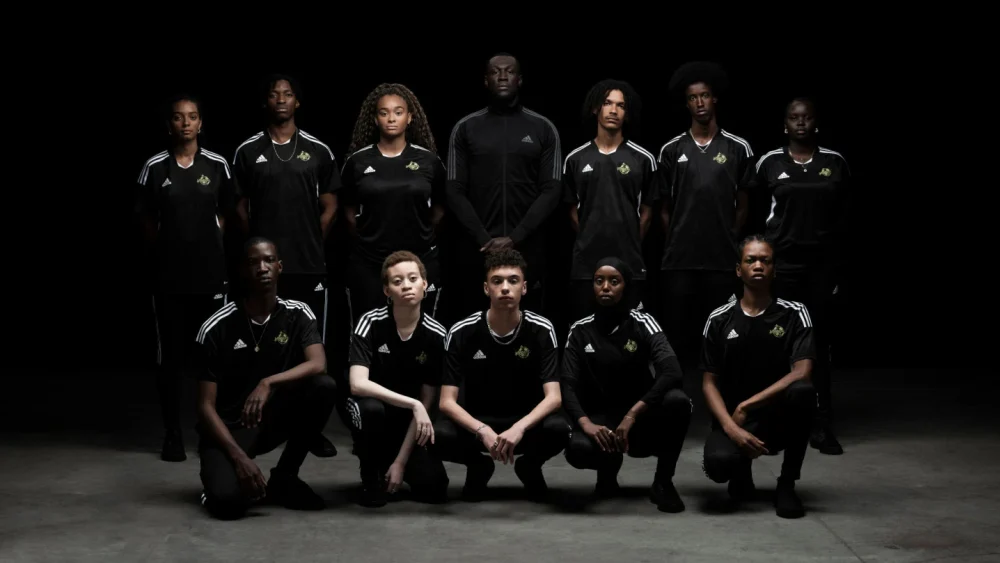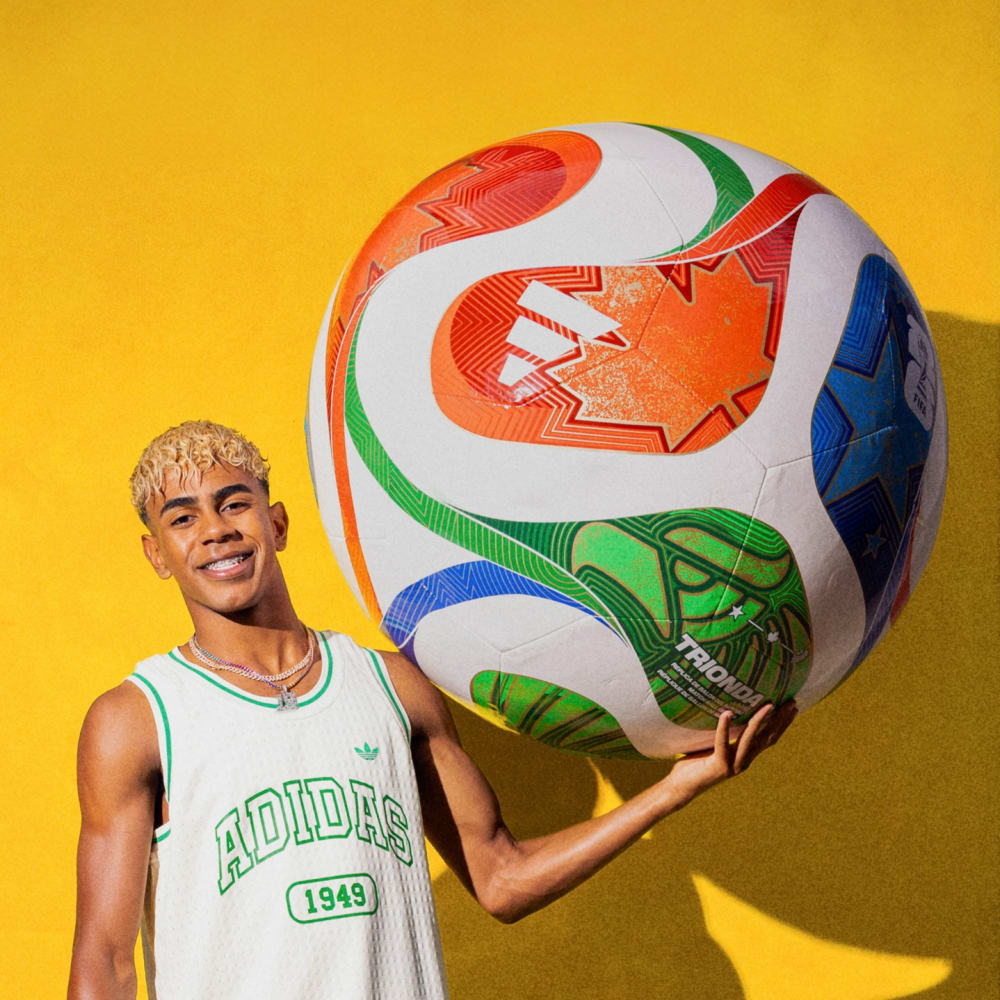
José Mourinho: A Winning and Leadership Style That Transcends Sport
Speaking proficiency in multiple languages, a proven track record, and international experience. This isn’t a job description. It’s what A.S. Roma’s manager José Mourinho brings to the table.

Sitting across from me is the lauded Portuguese field general of soccer. He’s coached in multiple countries. He’s won the most elusive of trophies. Twenty-four and counting, in fact.
José Mourinho is currently the skipper for A.S. Roma. With a stern gaze and an admirable self-assuredness, I’m getting strong Francis Ford Coppola cinematic vibes. True to José’s on-camera press conference stage persona.
Then he responds to my ice breaker question about when his adidas partnership began in the most uncharacteristic of José ways.
“You want a funny, quiet, silly, but a real story?” He asks.
I do, but not before he opens up about his journey to becoming one of the biggest names in soccer.
José Mourinho sits like a king atop a throne. And why shouldn’t he. Over a career that has spanned decades, he has shaped young men into leaders and has acquired a leadership style that wins games and trophies. Not to mention his poise and assertiveness, which garners more support and faith than some high-ranking politicians.
"José Mourinho sits like a king atop a throne."
This slick, silver fox of the soccer world started off as a young boy who had one thing on his mind: soccer.
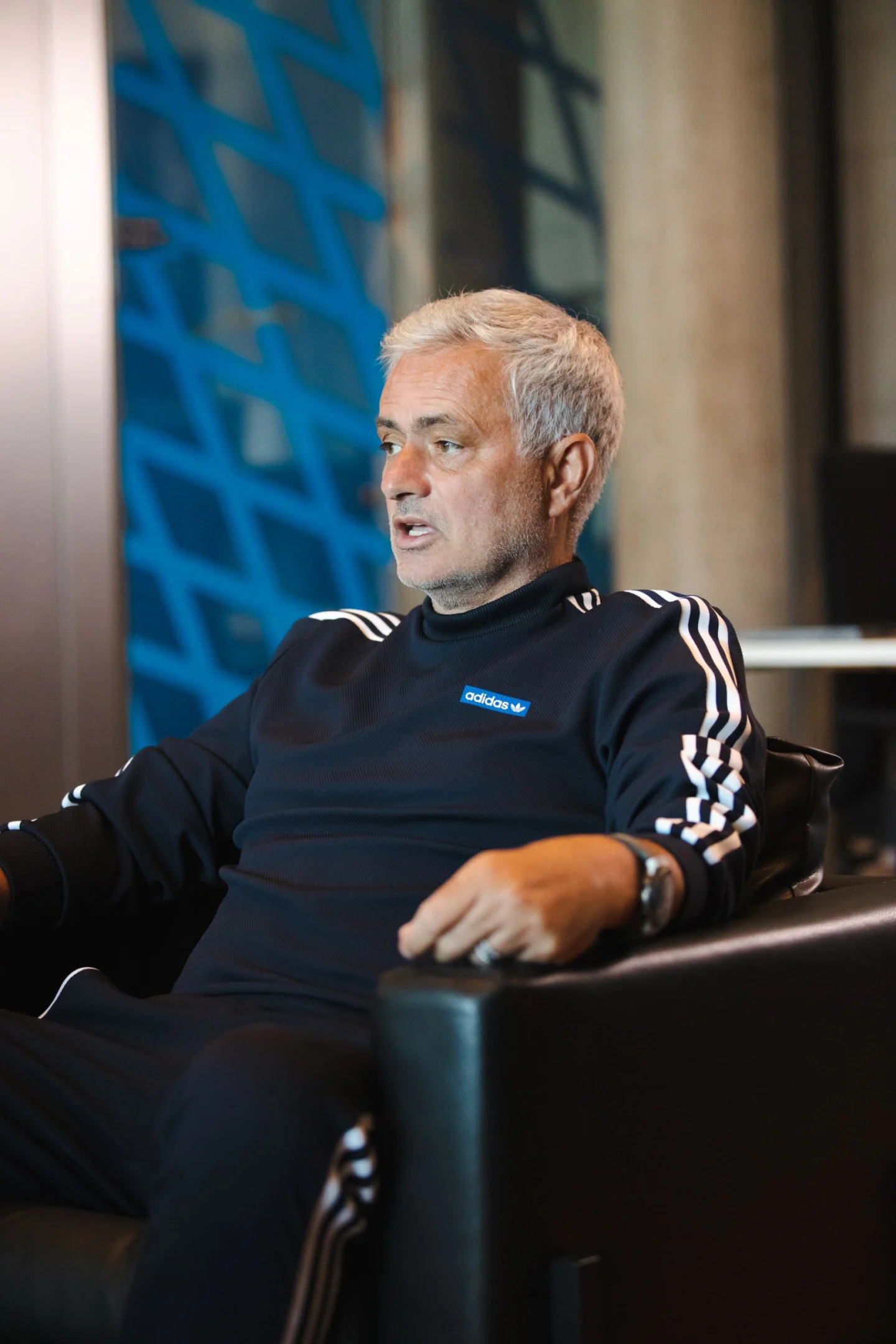 José’s love of soccer influenced the man he would become.
José’s love of soccer influenced the man he would become.
Life before coaching
As José takes me back to his youth, it’s clear that his career path wasn’t so straight forward. He’s ventured down many different paths. He wasn’t afraid to backtrack and set course for something else. His aspirations were high, but his resolve and commitment would set him on the road to coach at the highest level.
His first go around the professional merry-go-round was to pursue a business degree. As he recalls, “I was a pretty good student. So, I got a place at the University of Economics and I went to classes, but after a couple of weeks, I decided it wasn’t for me.”
After all, José knows what José wants.
And so he switched direction and went back to school to complete a sports science course, shifting his professional destiny in line with his childhood dreams. Once that was over, all that was left for José to do was to wait until he could take his shot – as a coach.
This polyglot has game
And the wait was very much worth it. José’s in came when he found himself as an assistant to Sir Bobby Robson – the legendary footballer and coach. Sir Bobby might have been one of the greatest names around at the time, but he had one salient weakness when he signed up for a coaching stint in Portugal: He could only speak English.
José understood that, linguistically speaking, Sir Bobby was in trouble, so he stepped up to break down the communication barrier.
"He needed my help at that level, and an assistant has to be an assistant. Even now, I say to my assistants: you have to do anything for your boss, just as I did."
So, it’s clear from the very beginning of his career, José Mourinho put incredible value on the ability to communicate: “It’s not possible to be a top football coach without speaking [different] languages.” He adds, “Football has become universal. In the dressing room, you have guys from many different nationalities, and of course you have to learn the mother language in the country you are in. In the end, to have more empathy and to communicate better with the people you’re working with, you have to be really good in different languages.”
Perhaps during the ‘90s, this wasn’t so widely recognized, but José’s proficiency in English, Spanish, French, and of course Portuguese, helped him to master his craft and it’s something that has shaped his career ever since.
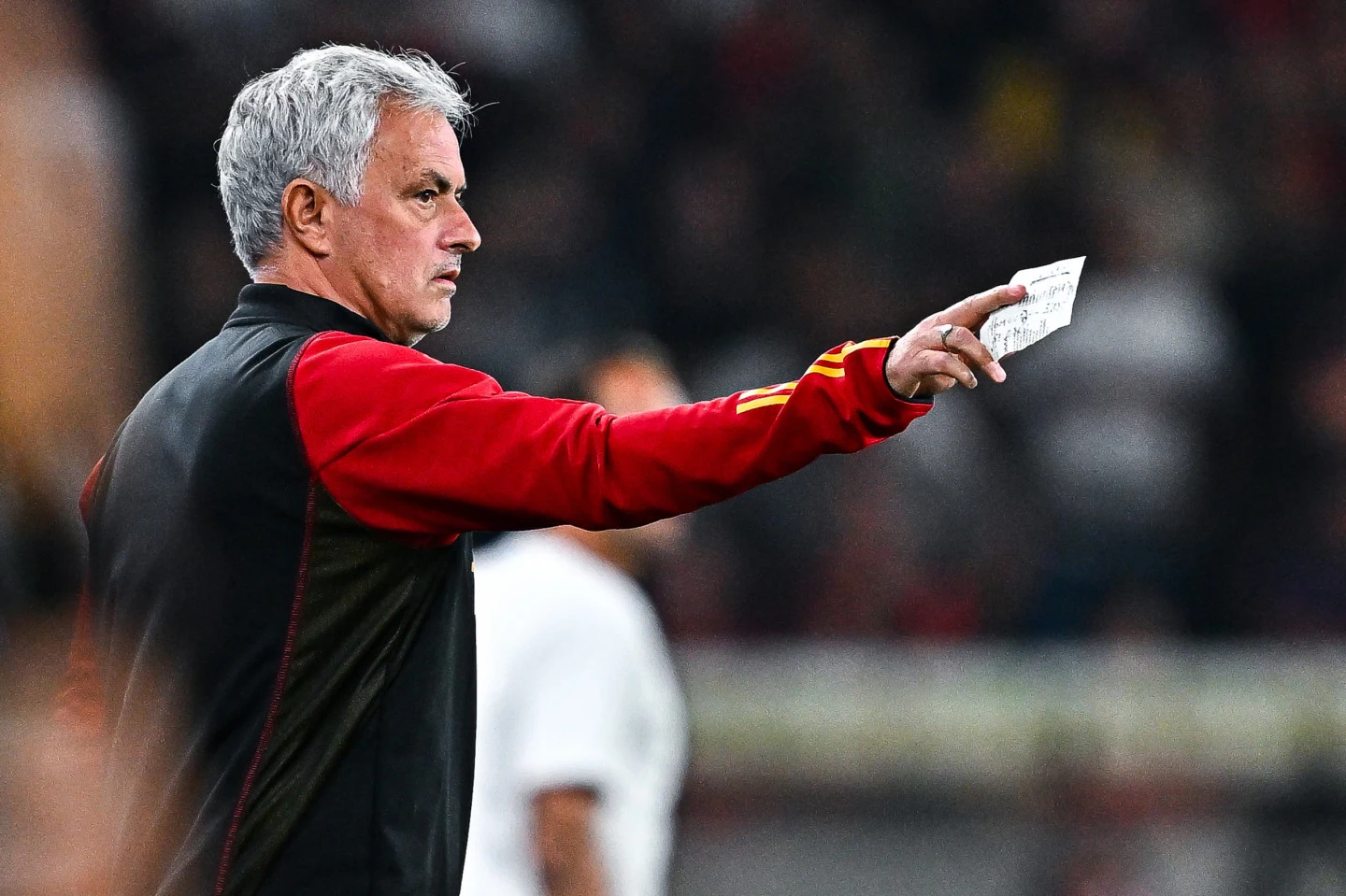 Being able to speak multiple languages helped José connect with his teammates. ©imone Arveda/Getty Images
Being able to speak multiple languages helped José connect with his teammates. ©imone Arveda/Getty Images
The evolution of his coaching style came from diverse experiences
José is a man of mystery on the sidelines. Over the course of 90 minutes of play, he goes through long bouts where it’s as though there’s a do not disturb sign hanging around his neck. Then there are times when he storms from his seat to chat up one of his reserve players, assistant coaches, or someone on the pitch – should they get within earshot for a throw-in. His coaching style – and how he treats his players and staff – is a culmination of his experiences that predates his head coaching days.
“There was a period before I became a professional in football when I was a schoolteacher and I learned a lot about different things,” he says, chuckling at the thought of what he had to go through as a teacher. “I also taught kids with Down syndrome, which was a hell of an amazing experience, and it made me understand so much.”
Then there were the elder statesmen in the world of football who enriched his encyclopedic knowledge of the game. He brings up Sir Bobby Robson and the Dutchman Louis Van Gaal in our conversation.
Speaking of his “long, long pathway” to becoming a head coach, José gives me the abridged history of his assistant coaching days. He tells me, “From working with Sir Bobby Robson in Portugal, I went with him to Barcelona in 1996, which for a young guy like me was an incredible experience. Then I was an assistant to Mr. Van Gaal, who was a [completely] different coach to Sir Bobby and that made me aware of two [completely] different philosophies.”
José was in a fortunate position to work alongside these two esteemed men. He would have exposure to their winning leadership styles, which in turn would help him further develop his own coaching style. And both Sir Bobby Robson and Louis Van Gaal had their own distinct, proven formulas for success.
The Englishman took his nation to the 1990 World Cup semis and won the UEFA Cup with Ipswich, was tactical, but built his game up around the players. On the other side of the coaching spectrum was the Dutchman, given the nickname the ‘Iron Tulip.’ He also won the UEFA Cup with Ajax and a handful of league titles; but his style of coaching was vastly different. It was more position driven. A forward has a certain set of responsibilities, as does a defender and midfielder: and the player needs to deliver as per the role’s requirements.
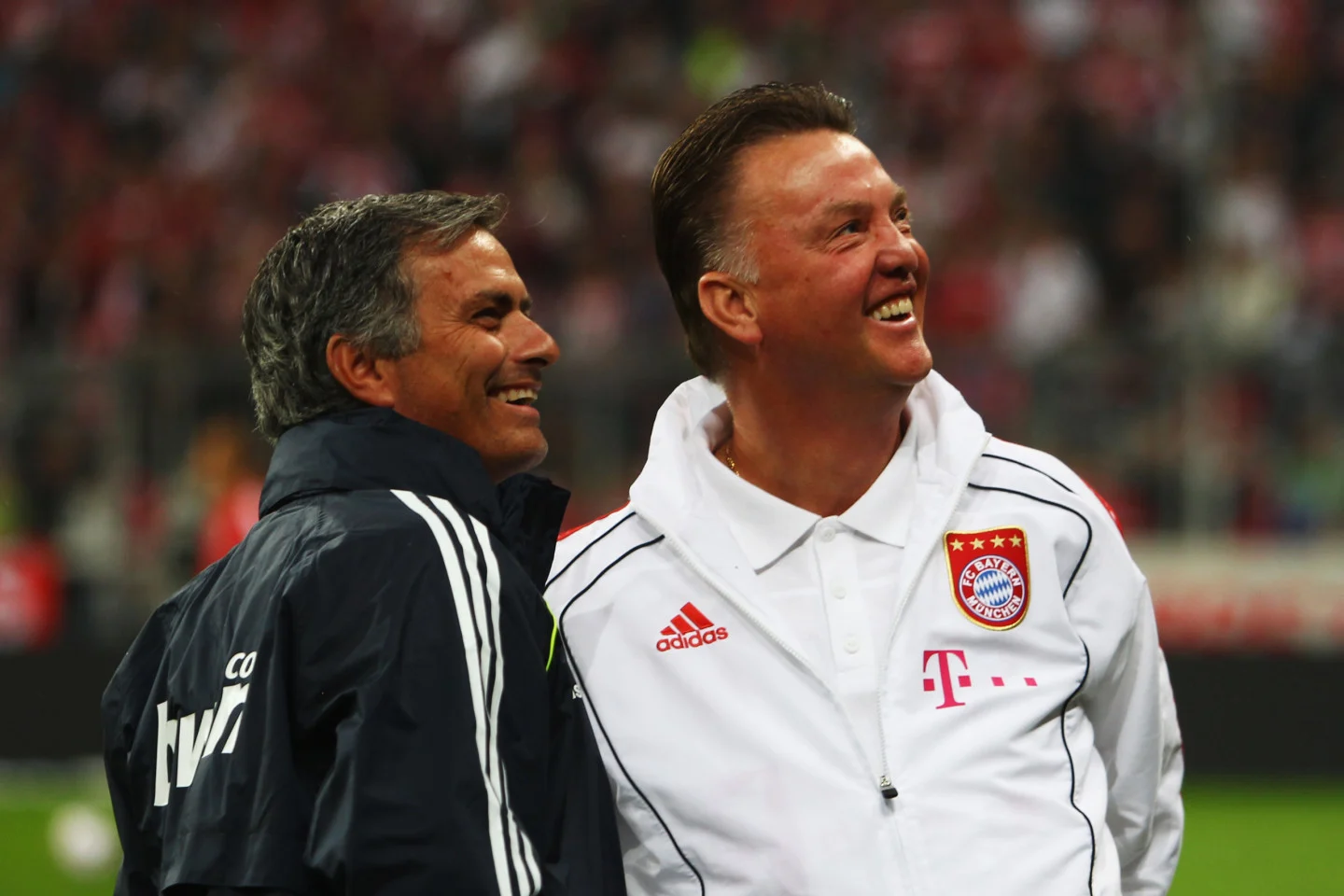 Louis Van Gaal and José standing side by side together. ©Sandra Behne/Getty Images
Louis Van Gaal and José standing side by side together. ©Sandra Behne/Getty Images
Then it was time for the next milestone in his development – and he was ready for it
Throughout the course of our chat, José’s keeps calm and relaxed: a dental hygienist’s dream. But there are times when he knows where I’m leading him during our talk. Like after talking about his assistant roles with Sir Bobby Robson and Mr. Van Gaal, there’s a slight pause.
He knows what’s coming and he becomes more animated – he raises his voice while the rest of his body remains at peace. He doesn’t budge. He cuts me off before I can finish asking him when he knew he was ready for his first head coaching gig.
"I was ready. I knew I was ready. When I left Barcelona in 2000, I knew there was no way back."
And that’s all there is to it. No sugarcoating the decision to leave behind the comforts of being able to grow and learn under the tutelage of soccer masterminds. It was time for the lone ranger to go out and leave his mark with his own unique style – starting with Benfica.
The UEFA Cup that stunned the soccer world
In 2003, the young José took on his second managerial role with a move to Porto. The team not only showcased a young, hungry, and mostly homegrown side, but also a determined coach who wouldn’t bow down to anyone. And with his unwavering drive, José led his team to a 3-2 victory in extra time against Celtic to win the club’s first UEFA Cup – also making them the first Portuguese side to win the tournament.
Did a younger José get caught up in his emotions after such a Cinderella story? Short answer: not so much.
He doesn’t quite downplay the team’s efforts, but he’s not one to sprinkle pixie dust on what really happened. He tells me the cold hard facts: “It was a team with one guy who was playing at a high level; that one guy was Vítor Baía, who played for Barcelona just one year earlier. Then there was me, the coach, who was a kid at the time. Most of the players came from small clubs in Portugal.” With a cool calmness, he adds. “It was like nobody was expecting anything from us. It was quite a big surprise.”
Then he fast-forwards to the year afterwards, which turned out to be another successful campaign for the squad in the UEFA Cup. Except this time around, he explains why it wasn’t such a stunner. He tells me, “To win the Champions League the next year was not a shock anymore because by then, we knew what we had done the year before and we knew what we could do; and it was just a consequence of so much talent together.”
Another chuckle surfaces as José critiques his own role within the squad: “The coach was very good, but the players were very good too.”
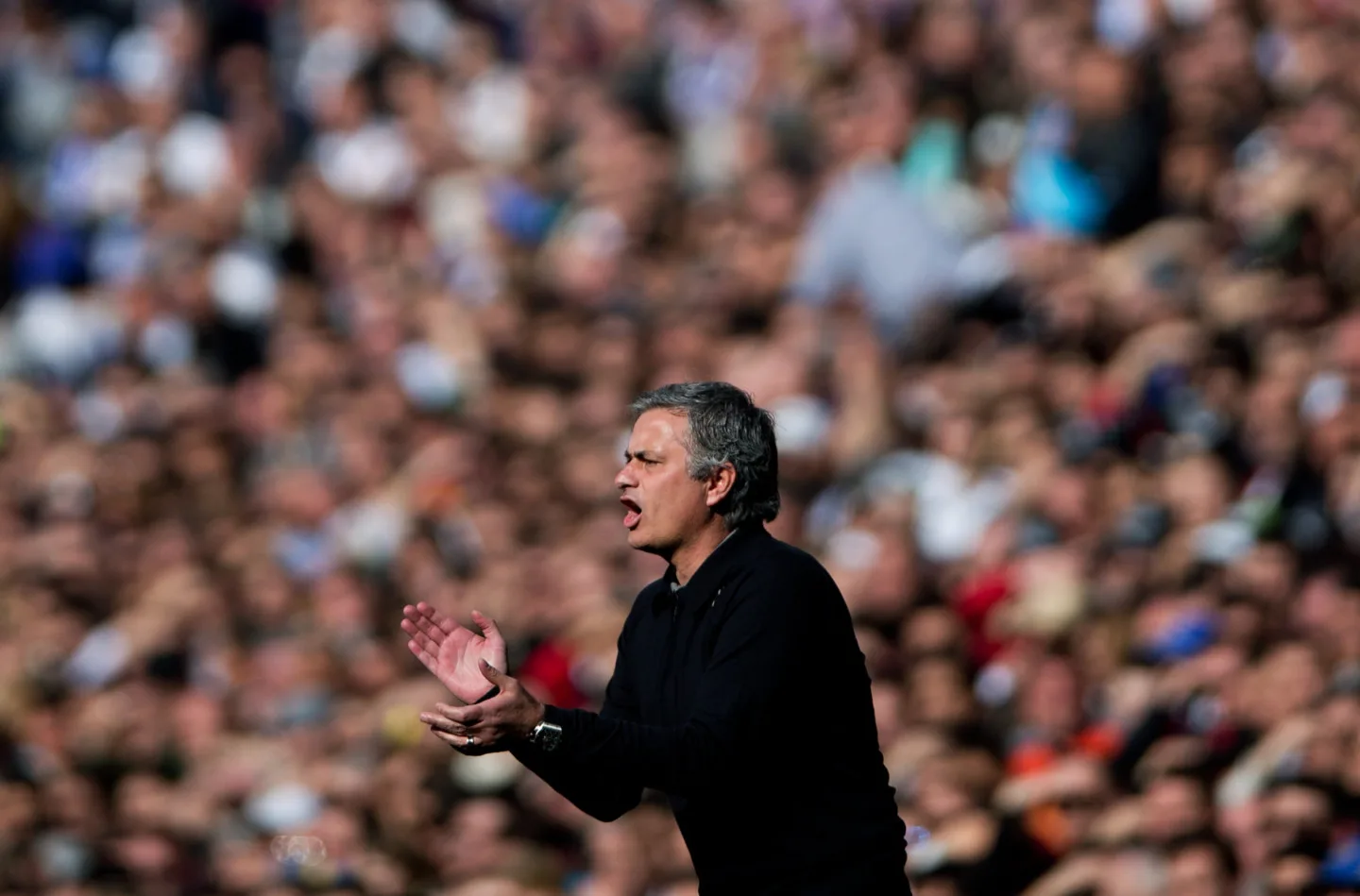 Bringing teammates together to win big games is part of the José way. ©Jasper Juinen/Getty Images
Bringing teammates together to win big games is part of the José way. ©Jasper Juinen/Getty Images
The reality of winning
Unprompted by my line of questioning, José shares the big money business part of the soccer world that’s infamous for taking the glamor out of small market teams.
“Winning the UEFA Cup was good for us, but it was not good for Porto. The football market took away from us and Porto lost out as a result,” he says, pausing before telling me what could have been. “We lost five, six, or seven key players. The team from 2003 and 2004 was a team that would have kept making history if they’d have stuck together.”
These early run-ins with the business side of football consequently shaped his definition of winning and he segues into the nuances of victory. Because upon closer inspection, soccer isn’t just about winning league cups, at least according to José. And that’s why he has compassion for coaches whose biggest claim to fame might be that they avoided relegation.
“When I see colleagues fighting relegation and managing to keep their team in the division, for me, that is winning. Winning is not necessarily about being the guy that gets the cup. winning doesn’t mean bringing home a medal or a cup.
"I have a lot of colleagues without one single title in their career. For me, they are winners because they reach their objectives."
But in José’s world, that doesn’t take away from the fact that winning is the all mighty deity behind his coaching spirit. His voice once again catches aflame, in direct contrast to his relaxed posture.
“This is the most important thing in our sport, which is football: It’s to win – it’s not to sell philosophy. It’s not to sell excuses. It’s to be a winner.”
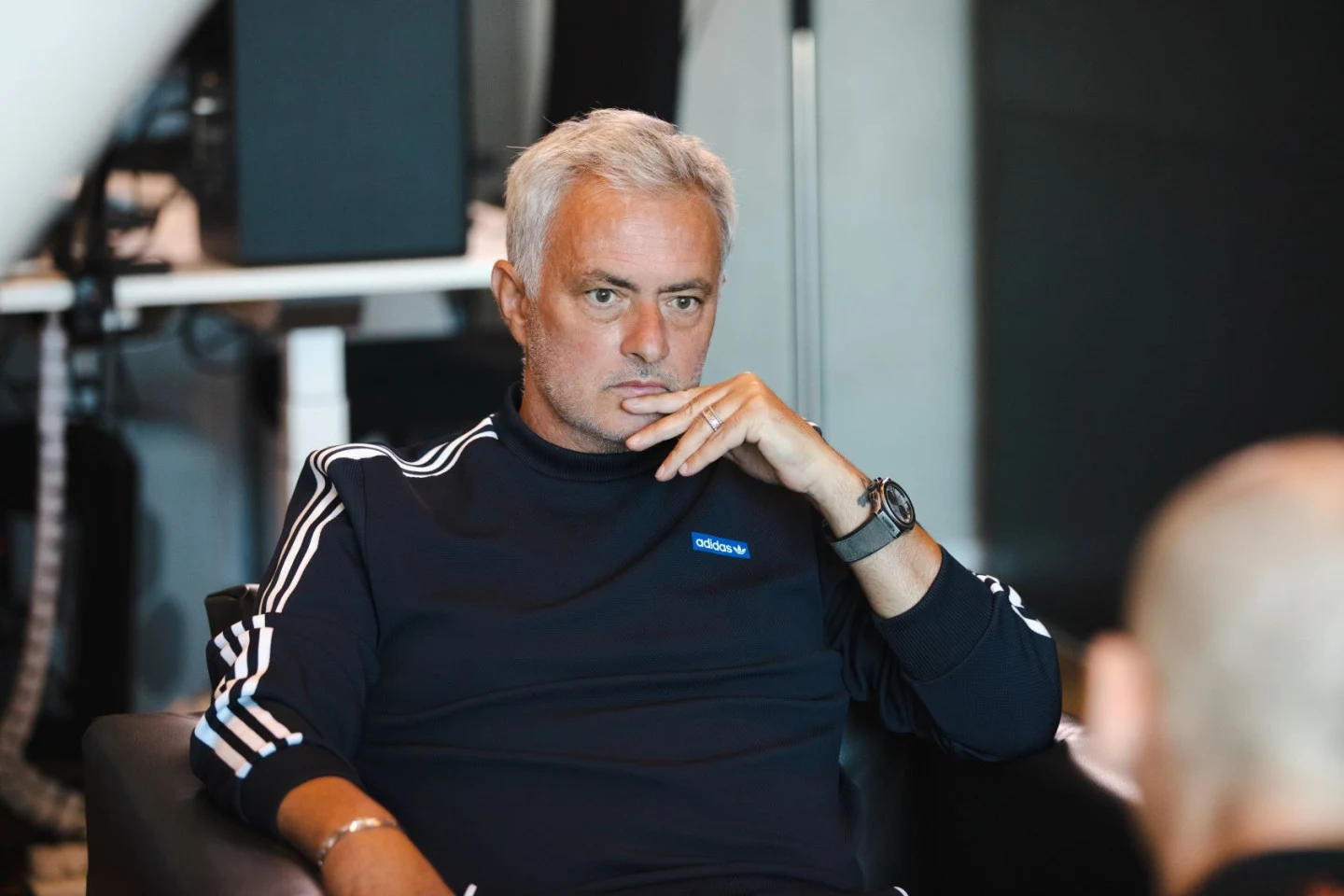 José puts into perspective the good and not so good attributes behind winning.
José puts into perspective the good and not so good attributes behind winning.
Managing to win while keeping his high-profile players in check
Coaching on the bigger stage means having to deal with household names – bolstering larger than life talents… and egos. José’s attitude to this is quite simple: “You have to have a strong personality to say, ‘okay, I am the boss, I make the decisions. This is not negotiable.’”
Some examples of the non-negotiables José tells me are common practice in the business world; they touch upon punctuality, respect, and accountability.
“If training sessions start at 10am, I don’t wait one single minute,” says José. Then with the smallest of wry smiles, he adds. “Even if you’re Diego Maradona, who I never had pleasure or the honor to coach, to start at 10 is to start at 10.”
“The team is the most important thing. Even if you are the best player in the world. A player with the biggest status in the club: the team is the most important thing.” Everyone has to follow the rules and show their respect for their colleagues.
"The team is the most important thing."
After making his point, loud and clear, that no one is above the team, his voice slinks back down to a more relaxed decibel. He then clarifies his tempered coaching style.
And having a good rapport with your team leads to wins – but at the same time José is weary of winning streaks.
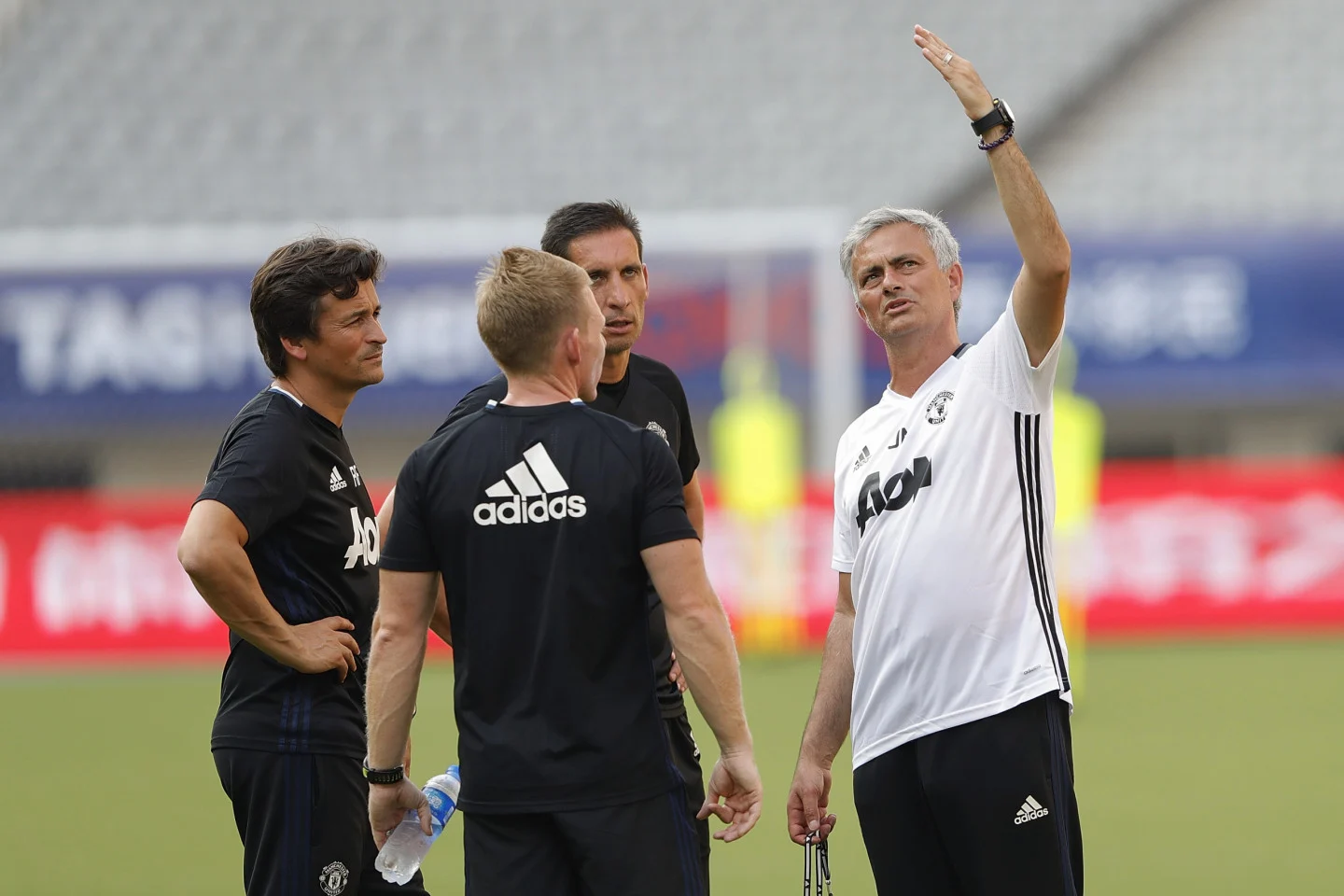 Firm but fair leadership is how José runs his soccer clubs. ©Lintao Zhang/Getty Images
Firm but fair leadership is how José runs his soccer clubs. ©Lintao Zhang/Getty Images
Maintaining a balance is also crucial in the long-haul
José tells me that he spends upwards of 11 months of the year with his players. And over the course of that long stretch, he mentions that there are many ups and downs the team will experience, which is why no one – especially not José – should take comfort during winning streaks.
“You win three matches in a row, but it’s not heaven… because a defeat is coming.” Jose says, even highlighting the perks of losing. “You lose two, three matches in a row; it’s also not hell, because you are going to get out of this dark moment, and you are going to win again.”
"You win three matches in a row, but it’s not heaven… because a defeat is coming."
And for José, balance is one key aspect of his coaching that he’s acquired over time from his early days with Sir Bobby Robson, Mr. Van Gaal, and even now, with A.S. Roma. “It’s very important to keep balance and this is something that I’ve learned a lot with experience. I think the more experience you have, the more balanced you are – and the players, they look at you and they see a rock – as well as someone they can trust.” Says José.
Even with rocks there’s a spectrum. Sedimentary rocks tend to be on the softer side while igneous rocks are harder. The physical appearance of a rugged, weatherworn rock gives off the impression that it’s got integrity and durability to withstand the harshest conditions. And equating coaching to a rock is fascinating because José knows how to navigate the fine line between shielding himself from his sharpest critics and showing his opponents he’s there to win, while being receptive to his team to get the best results.
When it comes to the softer variety of rocks, at least with respect to coaching, José says, “You know, empathy means everyone together in the same project. A club is made of many people. Owners, directors, coaches, players. Everyone. And empathy for me means that everybody is going in the same direction.”
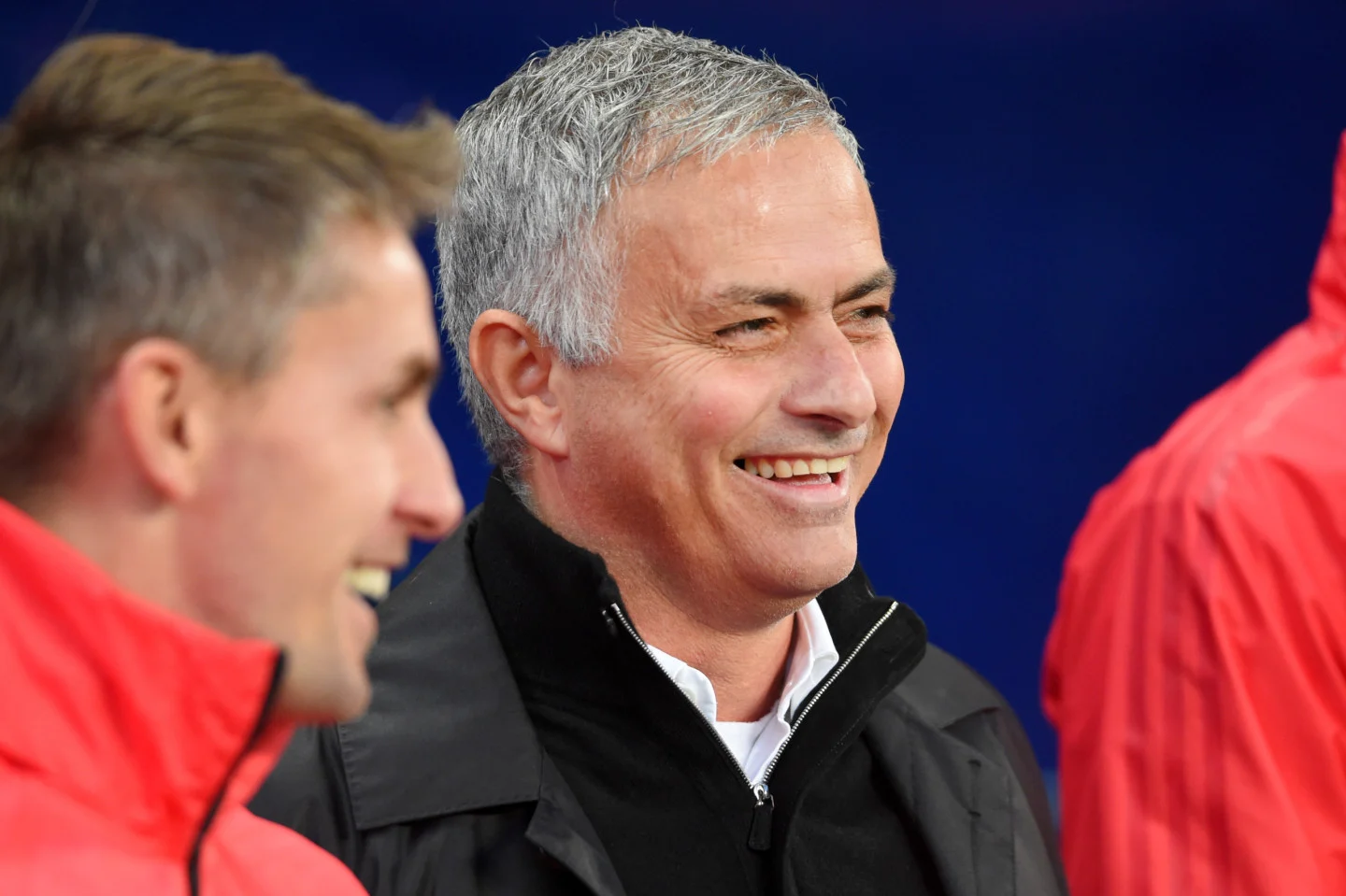 In José’s eyes, a team is the entire organization committed to achieving an overarching goal. ©Mike Hewitt/Getty Images
In José’s eyes, a team is the entire organization committed to achieving an overarching goal. ©Mike Hewitt/Getty Images
What should future coaches bring to the table?
At the end of our chat, I’ve learned a lot about authenticity, open communication, and leadership.
Many of the traits José possesses and practices are useful beyond the pitch: in maintaining strong bonds with friends and colleagues – and having a strong bond and trust within yourself and your own gut instincts.
I ask him what you need to do to have the kind of success he’s had over the years, especially as a manager in the sporting world. He says, “I would say, prepare yourself the best you can; don’t rush into it, too soon—because it’s very hard. So when you take your first coaching job, you have to be ready. If you are not ready for the job, then at the same speed you got the coaching job, at the same speed you’ll lose the job.”
adidas changes lives through sport starting at a young age
While José’s demeanor during my time with him was one of fire and passion, he also let his guard down and gave me a glimpse into his funnier side, casting his mind back to when he was a small boy. And there was a soccer ball by his side. Not just any soccer ball, but the adidas 1974 Telstar World Cup soccer ball.
“I slept with that ball for months. And I refused to play with my friends. The ball was too important, too special. My father got me that ball.” he recalls.
"So finally, I decided it’s enough, I have to enjoy it. I have to kick it; I have to bring it to the streets. I have to play with my mates. And it’s an incredible memory."
At press conferences and on the sidelines, there’s the José who plays to win, who comes across as cold and distant. But if you ever have the chance to sit down with him, time will fly. He’ll slap his thighs and jettison out with a curt “bye bye” as he readies himself for what’s next on his busy agenda. Classic press conference José – and it feels good.
But the time he gives you, you’ll gain an understanding that his play to win mentality comes from a love for the game – which started as a kid and with the 3-Stripes – and extends to the people around him who are willing to give just as much of themselves to the sport as he is.


